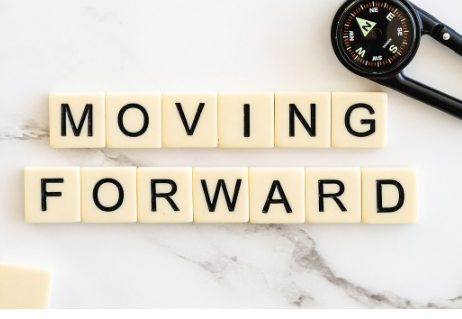Signs of the Friend Zone and Whether It’s Worth Staying in It?
Friendship is one of the most cherished human connections, offering companionship, support, and understanding. However, when one person harbors romantic feelings for another who only sees them as a friend, the dynamic takes a complex turn—commonly known as being in the "friend zone." This article explores the signs of being in the friend zone, the emotional toll it can take, and whether staying in such a situation is worth it in the long run.
What Is the Friend Zone?
The "friend zone" describes a scenario where one individual desires a romantic or sexual relationship, while the other values the relationship purely as a platonic friendship. Although it’s a widely recognized phenomenon, it can be emotionally taxing for the person whose feelings are unreciprocated.
Signs You Might Be in the Friend Zone
While every relationship is unique, certain patterns often indicate that one has been relegated to the friend zone. Here are key signs to look out for:
1. They Talk About Their Romantic Interests
When someone frequently discusses their romantic prospects or problems with you, it often signals that they view you as a confidant rather than a romantic option.
Real-Life Example:
Jake had a crush on his college friend Emily, but Emily often sought his advice about her dating life. Despite Jake’s subtle hints about his feelings, Emily remained oblivious, confiding in him as she would with any close friend.
What It Means:
If they value your input about their romantic life but show no interest in exploring a relationship with you, they likely see you as a trusted friend and nothing more.
2. They Set Boundaries Around Physical Affection
Limited or neutral physical interactions—such as avoiding prolonged hugs or keeping physical distance—are often signs of platonic intent.
Real-Life Example:
Sophia and Ryan spent hours together discussing movies and life goals. However, whenever Ryan tried to initiate physical closeness, such as holding hands, Sophia would gently pull away or laugh it off.
What It Means:
If someone consistently avoids crossing even small physical boundaries, it may reflect their intent to maintain the relationship as purely platonic.
3. They Encourage You to Date Others
Encouraging you to pursue relationships with other people is a clear indicator that they don’t see you as a romantic option.
Real-Life Example:
Priya liked her friend Arjun and was hoping to take their friendship to the next level. However, Arjun frequently suggested potential matches for Priya on dating apps, demonstrating that he only saw her as a friend.
What It Means:
When someone actively supports your romantic pursuits elsewhere, it’s unlikely they see you as a potential partner.
4. They Use Terms Like “Brother” or “Sister”
Referring to you in familial terms—such as "like a brother" or "like a sister"—is often a subtle but clear signal that romance is off the table.
Real-Life Example:
During a group trip, Anna told Liam, "You’re like the brother I never had." Liam, who had been harboring feelings for Anna, realized in that moment that she didn’t view him romantically.
What It Means:
Such language underscores the purely platonic nature of their feelings and is typically a sign to recalibrate expectations.
5. They Avoid Intimacy in Vulnerable Moments
In close friendships, moments of vulnerability often lead to deeper emotional intimacy. If these moments never cross into romantic territory, it may signify they only see you as a friend.
Real-Life Example:
When Max shared his struggles at work, Clara offered words of encouragement but never reciprocated with deeper, personal stories of her own, keeping the emotional boundary intact.
What It Means:
This could indicate that while they care about you, they are intentionally maintaining a safe emotional distance.
The Emotional Toll of the Friend Zone
Being in the friend zone is not just frustrating; it can also take a significant emotional toll. The feeling of being undervalued or overlooked by someone you care for can impact self-esteem and emotional well-being. Some common struggles include:
Unfulfilled Expectations: Continuously hoping for a shift in the dynamic can lead to prolonged disappointment.
Resentment: Over time, unreciprocated feelings may turn into resentment, which can harm the existing friendship.
Emotional Exhaustion: Trying to suppress or navigate feelings while maintaining the friendship can be emotionally draining.
Should You Stay in the Friend Zone?
The decision to remain in a friendship despite unreciprocated feelings depends on individual circumstances. Here are some factors to consider:
1. Assess Your Emotional Health
Staying in a one-sided friendship may not be worth it if it leads to prolonged unhappiness or self-doubt. Reflect on whether the friendship genuinely brings joy or if it feels more like an emotional burden.
Real-Life Example:
Maya realized that her feelings for her best friend Vikram were making her feel anxious and overshadowed her ability to appreciate their friendship. Taking a step back helped her regain perspective.
2. Be Honest With Yourself
If you find yourself constantly hoping for a change, it might be a sign to reconsider the friendship. False hope can hinder emotional growth and delay the pursuit of mutually fulfilling relationships.
Real-Life Example:
Sam held onto his friendship with Laura for years, hoping she would eventually see him as more than a friend. When he finally decided to walk away, he felt liberated and was able to move forward emotionally.
3. Set Boundaries
If staying friends feels viable, establishing emotional and physical boundaries is crucial. This ensures that the friendship doesn’t continue to hurt you in subtle ways.
Real-Life Example:
Ali had romantic feelings for his friend Zara but chose to stay friends after confessing them. To avoid discomfort, they mutually agreed to limit one-on-one time and focus on group interactions.
4. Consider the Value of the Friendship
If the friendship offers significant emotional support and mutual respect, it might be worth maintaining despite unreciprocated feelings. However, it’s essential to ensure that both parties genuinely benefit from the dynamic.
Real-Life Example:
Lila decided to stay friends with Aaron despite her romantic feelings, as their friendship provided invaluable companionship. Over time, her feelings faded, and they remained close without complications.
Moving On: A Path to Healing
For many, walking away from the friend zone is the healthiest choice. Letting go allows space for new opportunities and personal growth. Key steps include:
Focus on Personal Goals: Redirect energy toward hobbies, career aspirations, or self-improvement.
Expand Your Social Circle: Meeting new people can reduce the emotional weight of unreciprocated feelings.
Seek Closure: A candid conversation about your feelings can provide clarity and closure.
The friend zone is a complex emotional space that challenges both parties involved. Recognizing the signs and assessing whether staying in the friendship is worth it requires self-awareness and honesty. While unreciprocated feelings can be painful, they also present an opportunity for personal growth and the pursuit of healthier relationships. In the end, the choice to stay or move on should prioritize emotional well-being and mutual respect, ensuring that any relationship—romantic or platonic—adds value to your life.





Comments
Post a Comment